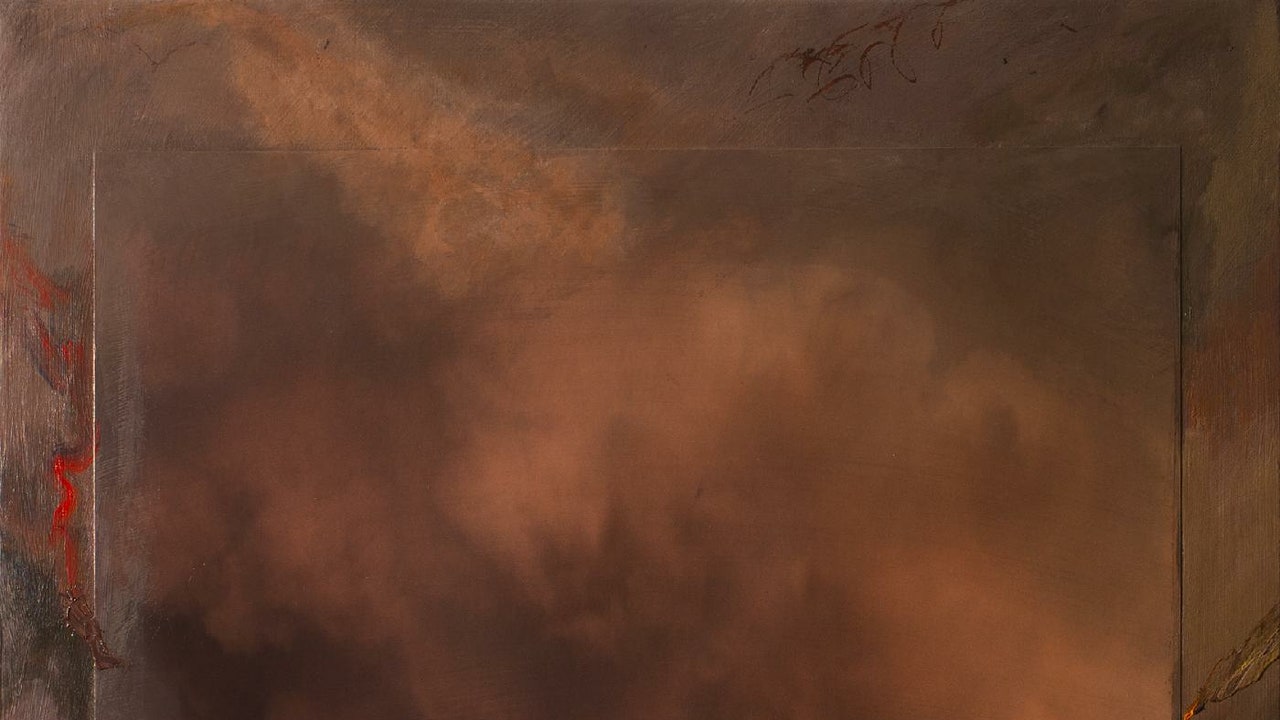A simple principle guides Brandon Miguel Valdivia's music as Mas Aya: “The more personal you can make music, the more interesting it is.” He does just that on his fifth album, It comes and goes. On “Be,” the Nicaraguan Canadian percussionist and producer hands the mic over to his young daughter, Martina, and Valdivia's partner and co-parent, Lido Pimienta, appears throughout the album—as he did in 2021. Máscaras— softening Mas Aya's twitchy, organically textured beatscapes to the point where they feel like the fruit of a family jam.
Spending an afternoon with Valdivia and Pimienta sounds like it would be magical, considering the duo's vast range of experiences, credits and collaborations – from remixing Run the Jewels to starring in a children's TV show with Beverly Glenn-Copeland. Staying busy throughout pandemic purgatory, Valdivia and Pimienta not only became parents, but moved from cosmopolitan Toronto to relatively suburban London, Ontario. It comes and goes it was originally composed around recordings Valdivia put together at his parents' house, drawing on Buddhist spiritual practices to create a sense of calm within the frantic beats, like Arthur Russell after listening to Traxman.
It comes and goes it boasts a patient, panoramic sound that embraces a lifetime of diverse cultures, communities and influences. Valdivia welcomes the pulse of house music under the huge stage of spiritual jazz. the album brings together a village of guest players, including Afro-Cuban percussionist Reimundo Sosa, trumpeter Nicole Rampersaud and Josh Cole on bass. “Dora” and “Windless, Waveless,” the album's opening tracks, flash back to folktronica-era Four Tet and Caribou. “Ocarina” is anything but a reference The Legend of Zelda, wrapping Rob Clutton's bright electric bass with rustling percussion and Rampersaud's luminous streaks of horns. Pumping pianos reminiscent of Mas Aya's bandmate Scott Hardware ring throughout “What Shattering!” and the stunning “No Trace,” a jazzy oasis of atmospheric bliss featuring vocals from fellow Toronto musician Isla Craig.
By the time he gets to closer “Abre Camino,” Valdivia has stretched himself to the limit, filling nearly seven minutes with shimmering synths, wooden flutes, and rhythms piled upon rhythms. Miraculously, these kinds of dense cross-threads soothe rather than stress, drifting deeper into the ambient dimensions of Mas Aya's music. On Máscaras, the intellectual dimension of his music masked political themes revealed in samples of street demonstrations and revolutionary poets. This time, the staff is political. Alongside the warm tactile sounds of the album's myriad interwoven instruments, the loving presence of the two primary people in Valdivia's life and an even larger select family of close collaborators creates a human connection so strong you can feel it. One way to push back against injustice, he suggests, is simply to be in the here and now with your loved ones—an action so powerful it needs no words to resonate.
All products featured on Pitchfork are independently selected by our editors. However, when you purchase something through our retail links, we may earn an affiliate commission.



